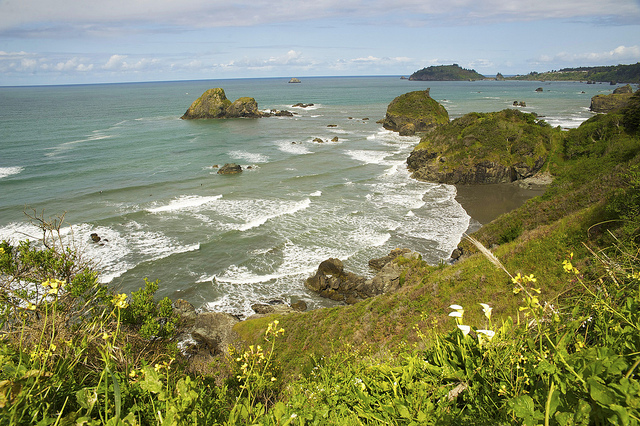
Mark Murray, Marine Naturalist, hosts this year’s Marine Science Summer Program at the HSU Marine Lab. The goal of the marine science summer program is to offer children a hands-on opportunity to learn about and explore local diverse marine habitats. Each program includes observation of live marine animals, a walk to a local beach and a craft or project to bring home.
The program for all three sessions runs from 9 a.m. to 2 p.m. every day. The cost is $15 per day or $70 for the whole five-day session, and $40 for the whole three-day session. Download the program brochure and registration form here.
The program includes three sessions with the following dates
Session One July 8 to July 12
Session Two July 16 to July 18
Session Three July 22 to the 26
Program Schedule (Five-day Session)
Day 1: The Marine Lab & Local History
Introduction to the Marine Lab and local history; journey to some local historical sites.
Day 2: The Ocean
Explore the chemical makeup of the ocean with a field trip to the local beach and learn to use basic scientific equipment.
Day 3: Marine Mammals & Fish
Take a closer look at local marine mammals and fish; explore animals up close in the lab.
Day 4: Kelp Forest & Tide Pools
Learn about magnificent kelp forests and explore some stresses on local tide pools; perform your very own herbarium press.
Day 5: Classification & the Rocky Intertidal
Learn about local animals found in tide pools, and apply this knowledge as the group goes tide pooling.
Program Schedule (Three-day Program)
Day 1: Invertebrates
Begin with a look at the most abundant creatures on the planet, the invertebrates, with a lab exploring these organisms up close.
Day 2: Vertebrates & Algae
Learn about some of the biggest animals in the world by exploring marine mammals and fish and explore the plants that grow in the ocean.
Day 3: Ocean Ecosystems
Learn about all of the diverse habitats that are found in the ocean.